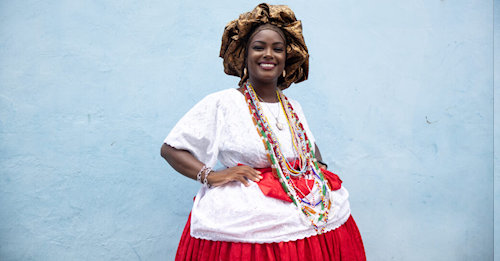
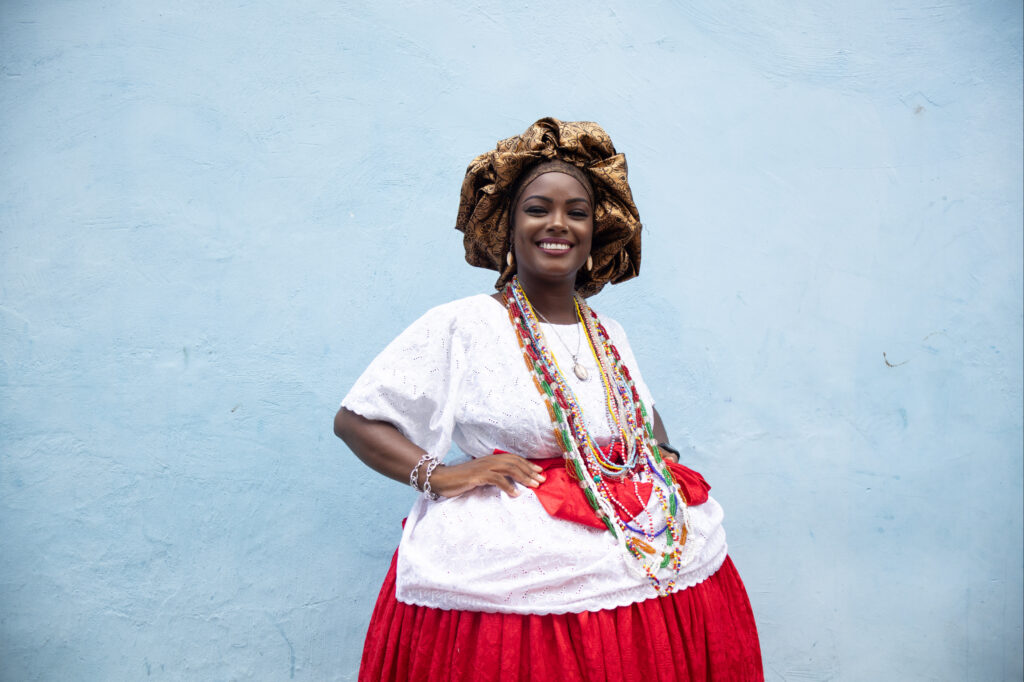
Nestled along the northeastern coast of Brazil, the colorful city of Salvador, the capital of Bahia, beckons travelers from around the globe with its rich history, diverse culture, and vibrant energy. This mesmerizing city offers an unparalleled mix of Afro-Brazilian heritage, colonial architecture, and tropical landscapes, offering travelers a wealth of experiences waiting to be explored.
But perhaps no event encapsulates the essence of Salvador quite like its legendary Carnival, a celebration that ignites the streets with an explosion of music, dance, and cultural fervor that captivates the soul of Brazil. Unlike its more famous counterpart in Rio de Janeiro, Salvador’s Carnival boasts a unique blend of African, Indigenous, and Portuguese influences, making it a vibrant celebration of Brazil’s diverse cultural heritage and is a must-experience event on the global calendar for travelers seeking the essence of Brazilian joy and festivity.
A Legacy of Resilience and Celebration
Steeped in centuries of history, Salvador is celebrated as the epicenter of Afro-Brazilian culture, a vibrant testament to its history as the first slave port in the Americas. As the largest black population outside Africa, Bahia is a melting pot of African, indigenous, and European influences, a fact that is celebrated and honored during Carnival, with roots deeply embedded in the traditions of Bahia’s African descendants. This annual event is more than just a festival; it’s a testament to resilience, celebration, and cultural fusion.
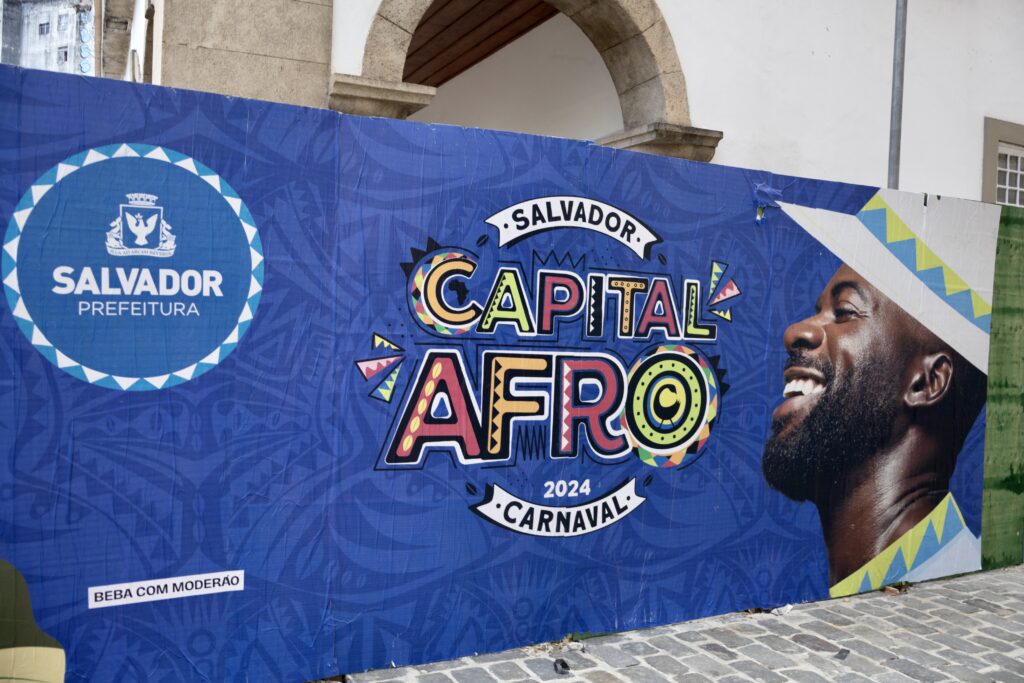
The World’s Largest Street Carnival
Salvador’s Carnival, recognized by the Guinness World Records as the world’s largest street party, serves as a vibrant backdrop to explore this unique cultural landscape taking on a distinctly Afro-Brazilian flavor, reflecting the city’s rich cultural heritage. It’s an unparalleled celebration of music, dance, and costumes, attracting millions of travelers from around the globe every February.
Different than the ticketed sambadrome parades of Rio, Salvador’s Carnival is celebrated on the streets, making it accessible to everyone. Salvador is famed for its “trios elétricos,” massive electrically powered trucks floats equipped with high-powered sound systems, hosting live bands that lead throngs of dancers and jubilant crowds through historic neighborhoods spanning several circuits.
The city bursts into life with blocos (street parties) and afoxés (Afro-Brazilian cultural groups), each bringing their own flavor to the festivities. This week-long festivity is a testament to the city’s spirit of unity, a cherished time when people from all walks of life come together to celebrate.
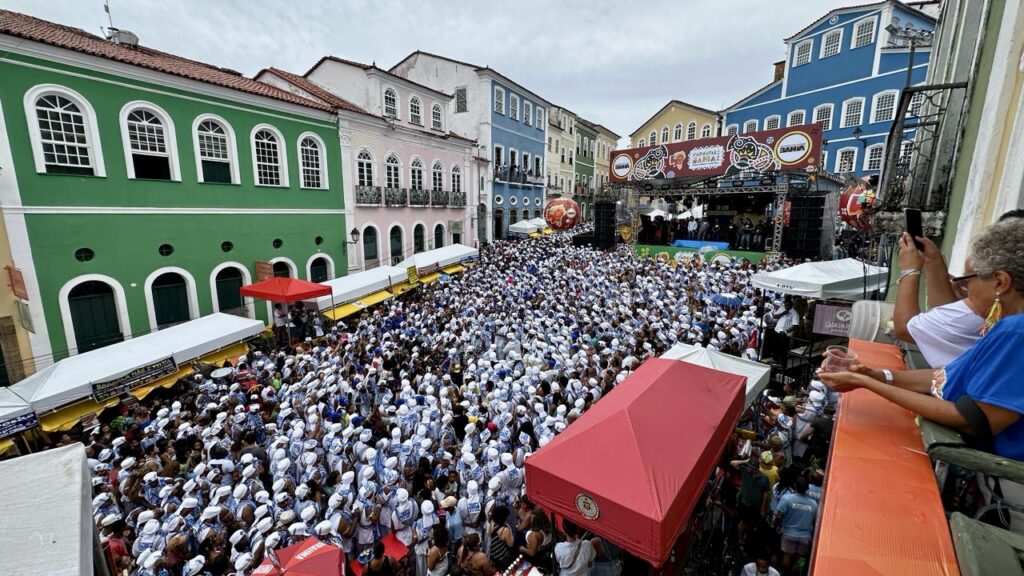
A Kaleidoscope of Sounds: The Music of Carnival
At the heart of Salvador’s Carnival is its music, a pulsating force that drives the celebration. Axé, a genre that blends African, Caribbean, and Brazilian pop music, dominates the scene, with iconic bands and singers leading the charge on trios elétricos. But it’s the traditional rhythms of samba-reggae, pagode, and other Afro-Brazilian beats that give Salvador’s Carnival its soulful depth. The music is more than just a backdrop; it’s the soundtrack to a communal expression of unity.
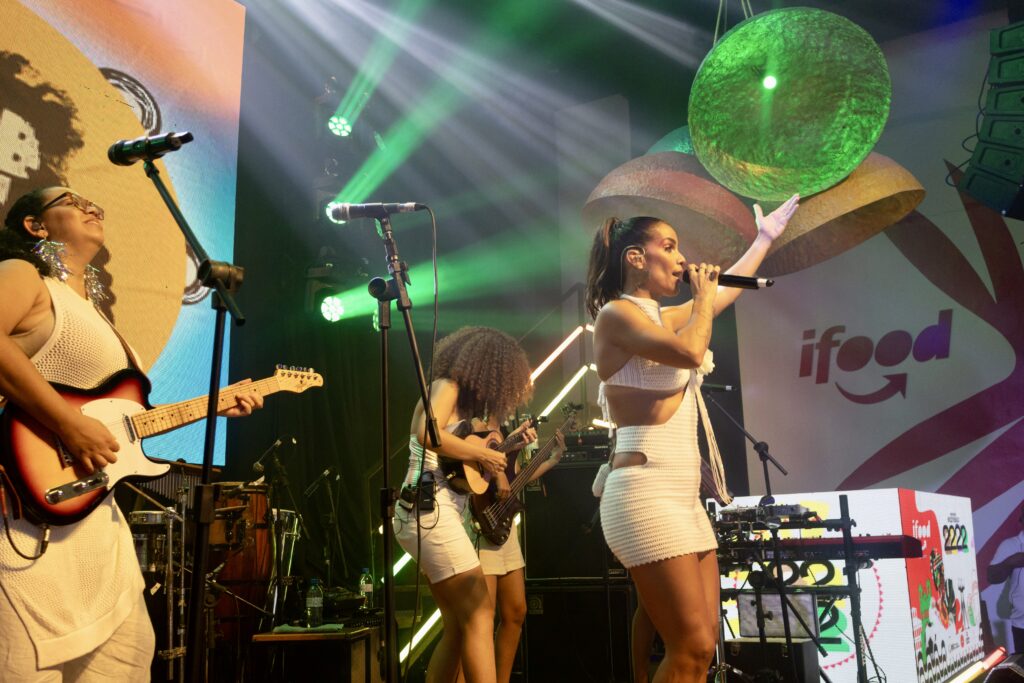
Blocos Afro: Pillars of Carnival
Blocos Afro are at the core of Salvador’s Carnival, celebrating African culture and history. These groups, with their powerful drum beats and elaborate costumes, pay homage to African heritage and the resilience of the Afro-Brazilian community. Ilê Aiyê, the first Afro bloco, has been a trailblazer in promoting black consciousness and pride, transforming Carnival into a platform for cultural affirmation and social change.
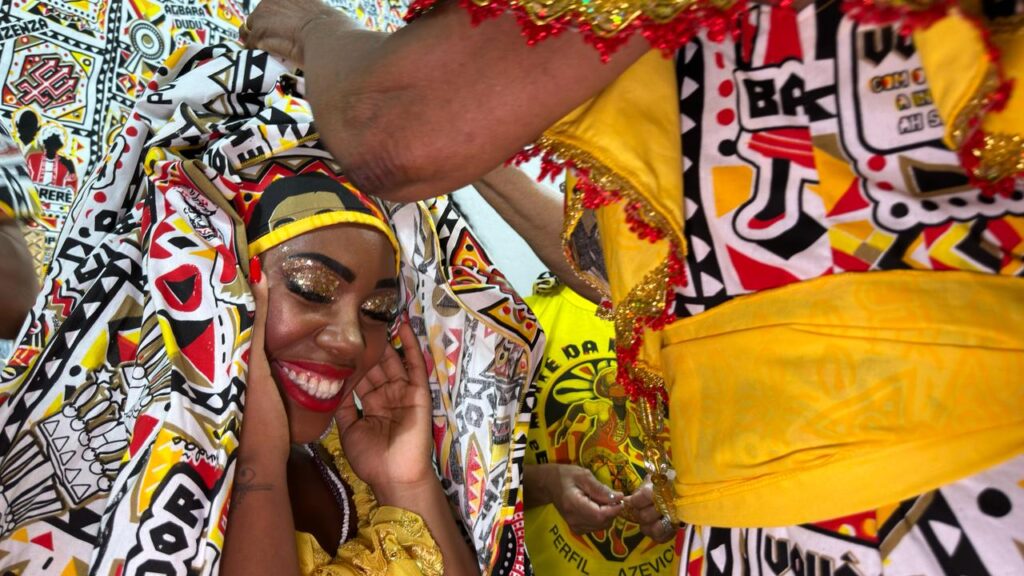
Filhos de Gandhy: A Message of Peace
The “Filhos de Gandhy,” another iconic group, parades in white robes, spreading messages of peace and brotherhood inspired by the Indian leader Mahatma Gandhi. Inspired by Mahatma Gandhi’s principles of non-violence and peace, this male-only group was founded by dock workers in 1949 and has since become a symbol of tranquility and brotherhood amidst the Carnival’s exuberance.
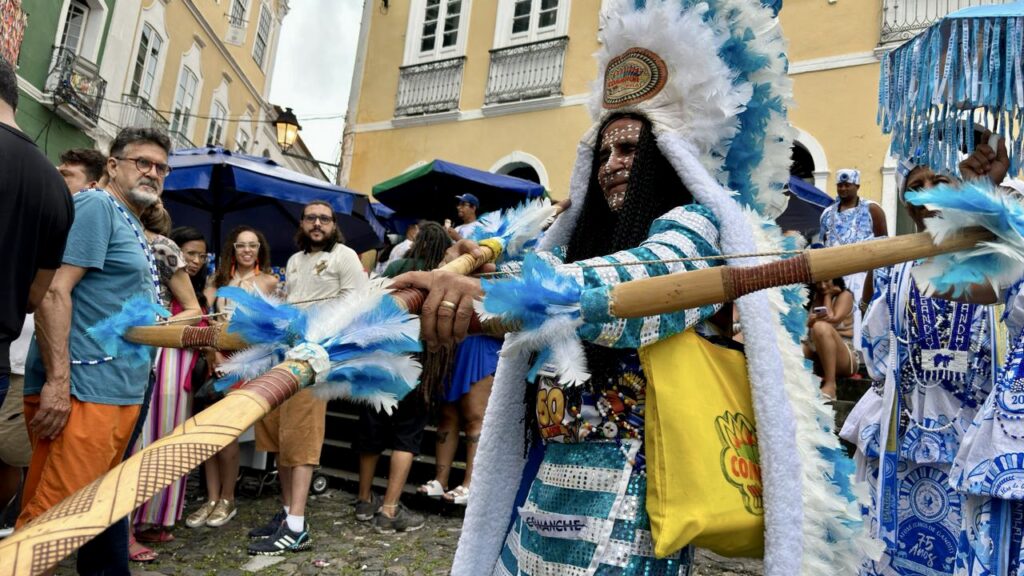
Pracatum: A Symphony of Social Change
Carlinhos Brown, a multi-talented artist from Salvador, embodies the city’s musical diversity. As a singer, percussionist, and songwriter, Brown has been instrumental in popularizing Afro-Brazilian music globally. His initiatives, like the Pracatum Social Project, have empowered the youth of Salvador through music and education, showcasing the transformative power of art.
More than just a music school, Pracatum is a beacon of hope in the Candeal neighborhood, offering professional training in music and audiovisual fields, thus uplifting the community and fostering social change. A visit to Pracatum during Carnival offers a unique glimpse into the heart of Salvador’s cultural activism and the role of music in societal transformation.
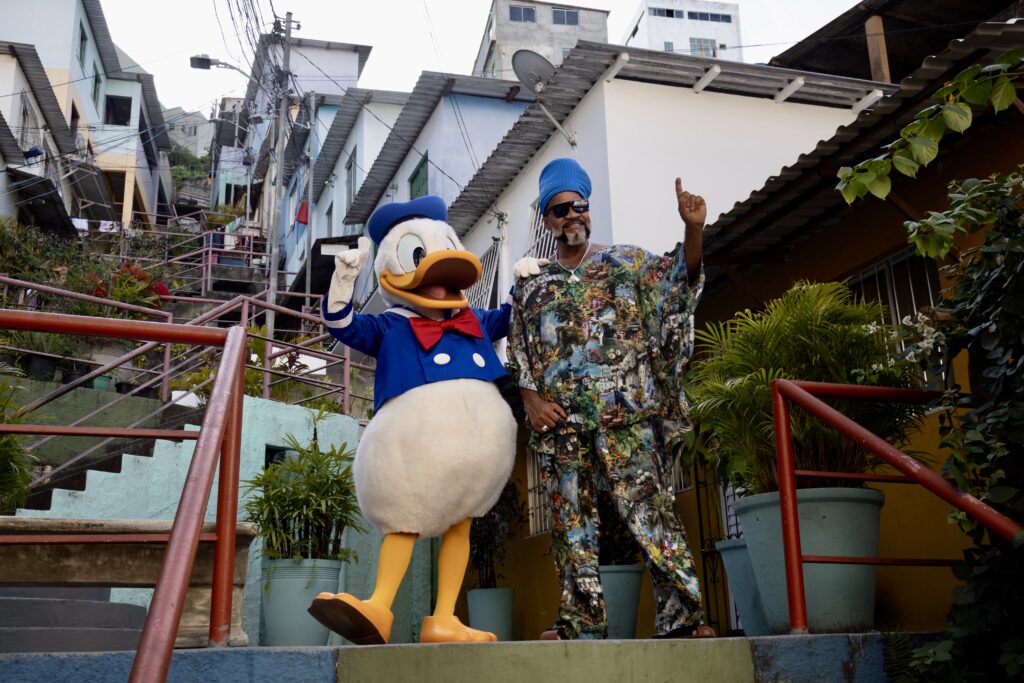
Experience Afro-Brazilian Culture at the Afro-Brazilian Museum
Beyond the revelry, Salvador is home to significant cultural landmarks. The National Museum of Afro-Brazilian Culture offers deep insights into insights into the profound African heritage that shapes Bahia. Delve into the rich heritage of Bahia’s Afro-Brazilian community, where exhibits showcase the cultural contributions of African descendants in Brazil. From traditional music and dance to religious practices and culinary traditions, immerse yourself in the vibrant tapestry of Afro-Brazilian culture that shapes the identity of Salvador and beyond.
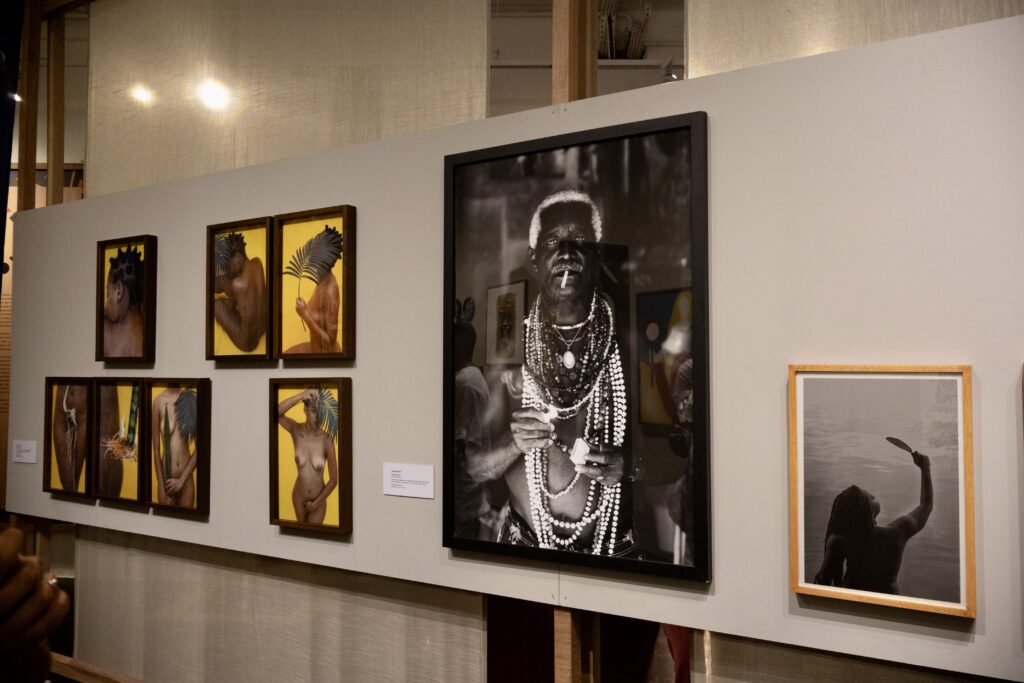
Exlore Pelourinho & the Echoes of Michael Jackson
Pelourinho, Salvador’s historic center, is a UNESCO World Heritage Site where pastel-colored colonial buildings, cobblestone streets, and lively music scenes create a backdrop for an immersive cultural experience. Discover hidden gems around every corner, from charming boutiques to lively cafes and art galleries.
Pelourinho also served as the location for Michael Jackson’s “They Don’t Care About Us” music video. Directed by Spike Lee, the video features the Olodum drumming group and highlights the global appeal of Salvador’s music and culture.
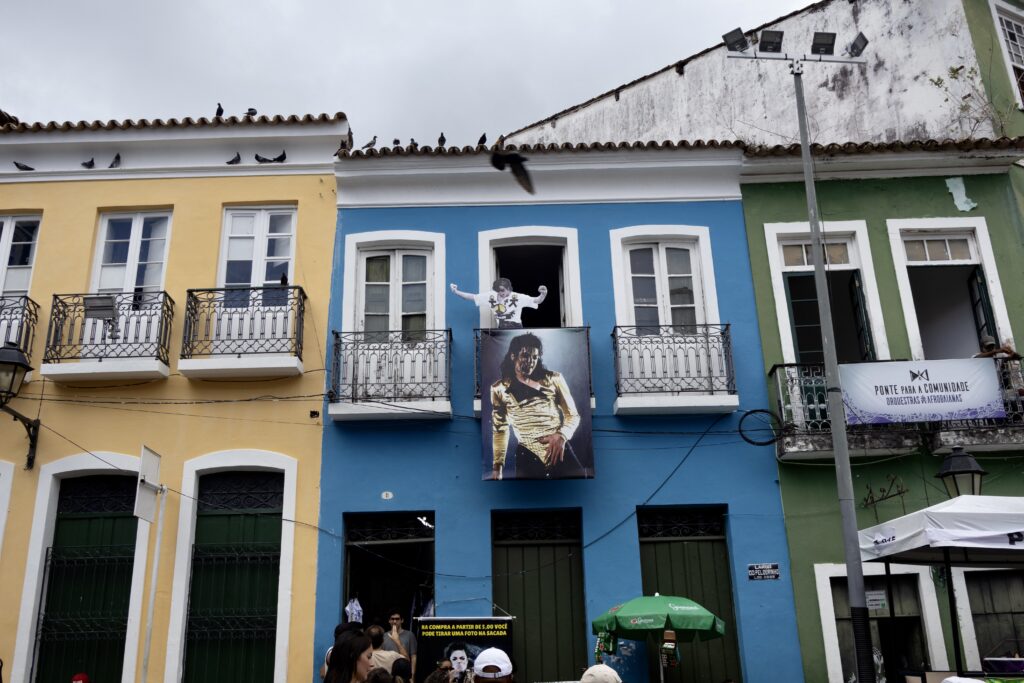
Savoring Bahia’s Culinary Treasures
Carnival in Salvador also offers a gastronomic journey through Bahian cuisine, known for its rich flavors and blend of African, Indigenous, and Portuguese influences. From the iconic spicy street food, acarajé—a savory fritter made from black-eyed peas and fried in palm oil—to the rich and flavorful seafood stew that embodies the coastal spirit known as moqueca, Salvador’s culinary offerings, provides a delicious lens through which to experience the city’s cultural diversity.
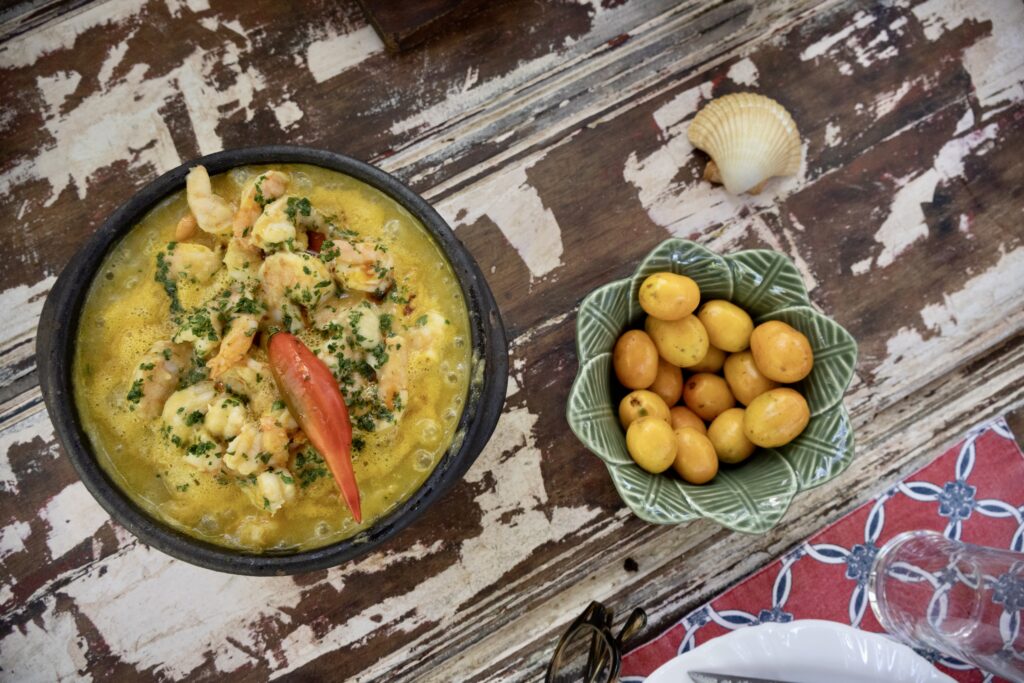
Embracing Diversity and Inclusion
One of the most beautiful aspects of Salvador’s Carnival is its celebration of diversity and inclusion. Here, people of all backgrounds come together to revel in the joy of music, dance, and community. From Afro-Brazilian traditions to LGBTQ+ pride, Salvador’s Carnival is a true reflection of the city’s eclectic and inclusive spirit. Whether you’re dancing alongside locals in the streets or watching the parade from the comfort of a balcony, you’ll feel welcomed and embraced by the warmth and hospitality of Bahia’s people.
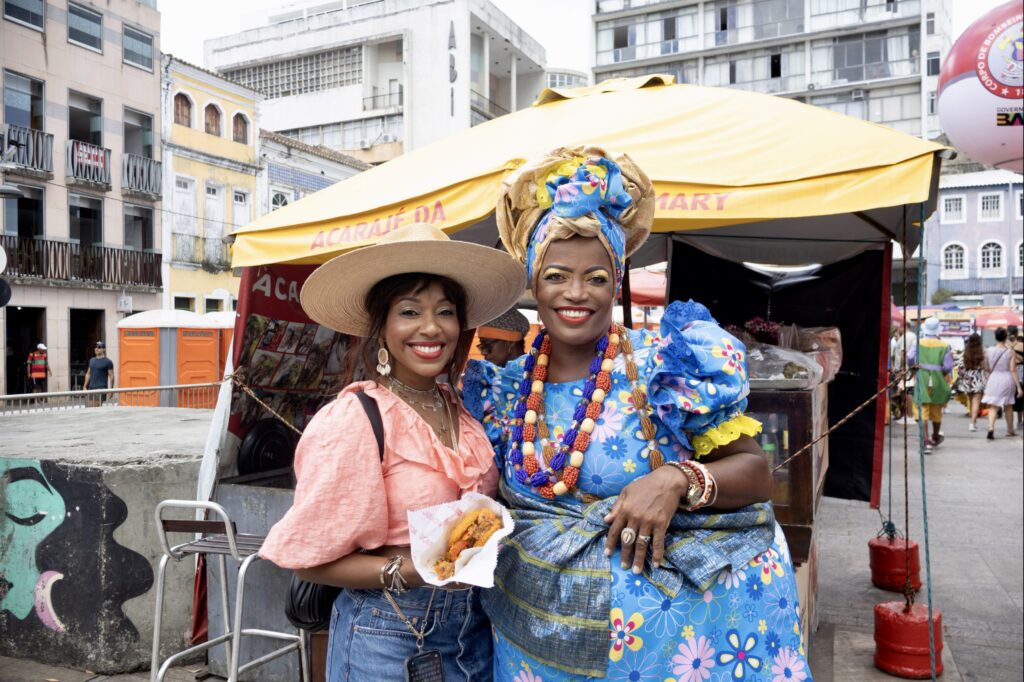
The Spirit of Salvador
From the historic streets of Pelourinho to the transformative rhythms of Pracatum, Carnival in Salvador is not just an event; it’s a journey into the heart of Brazilian culture. Amidst the rhythmic beats, vibrant parades, and kaleidoscopic costumes, visitors find a deeper connection to the soul of Brazil. The festival embodies the essence of Salvador: resilience, joy, and an unwavering sense of identity.
By Kinya Claiborne, STYLE & SOCIETY








